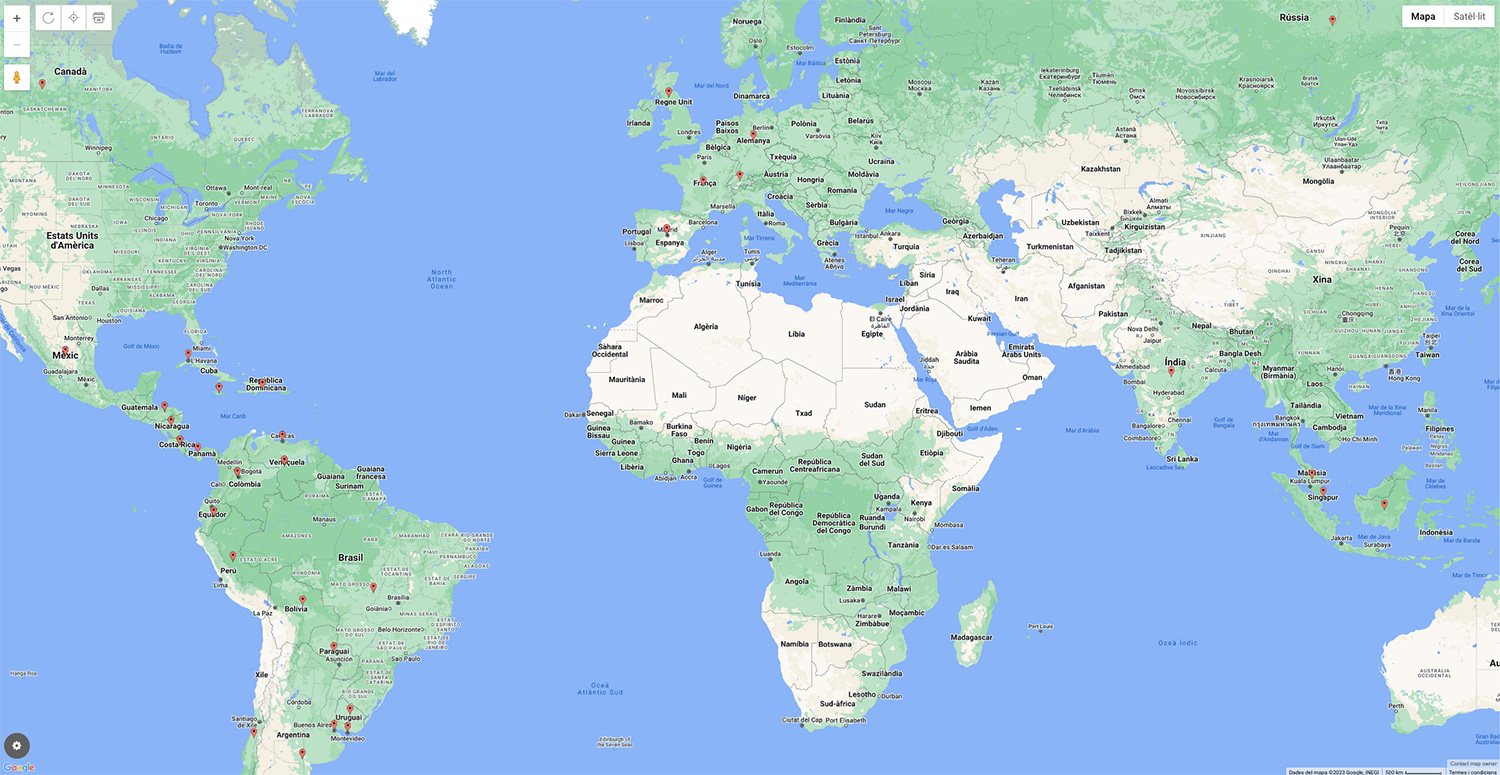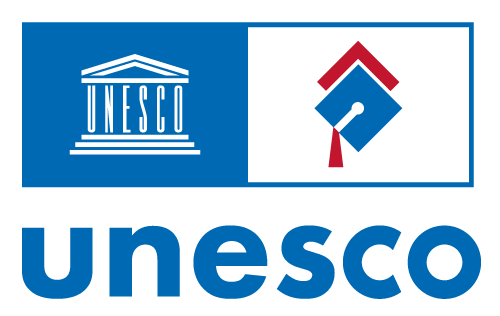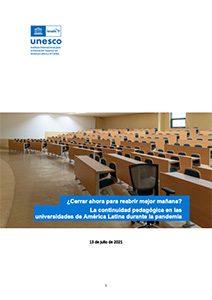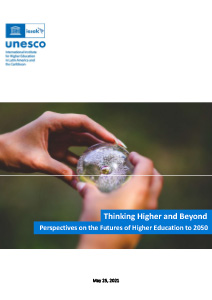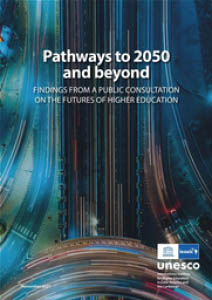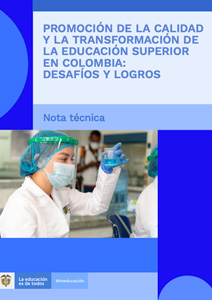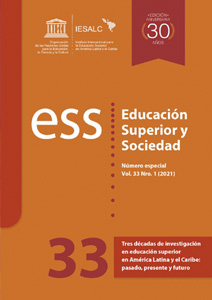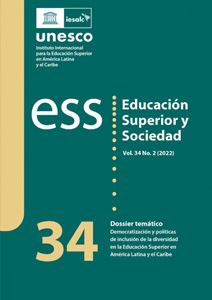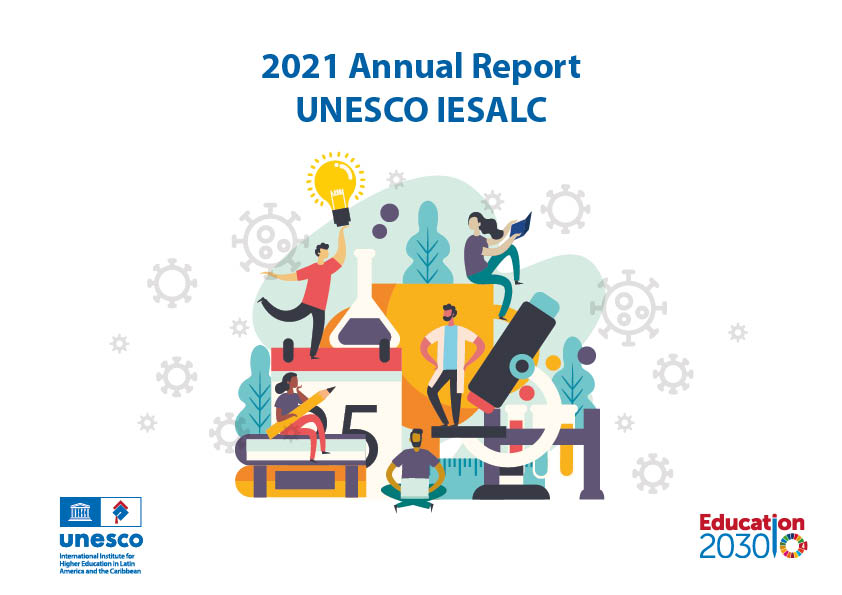2021 Annual Report
UNESCO IESALC
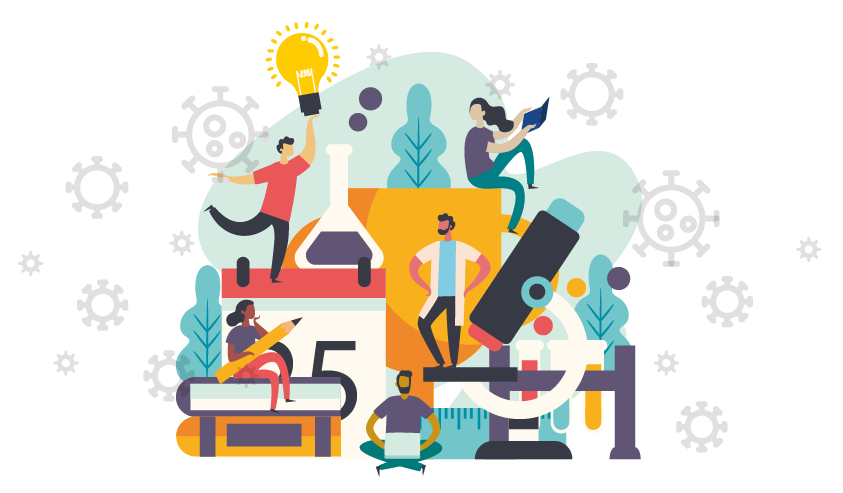
Response to COVID

The pandemic that started in 2020 had a major impact on higher education worldwide, as in the other education subsectors, in 2021. Given the increasing need for pertinent information on actions undertaken by different higher education actors, IESALC continued to nurture resources on COVID-19 and higher education for governments, higher education networks, and higher education institutions Furthermore, to support students and teaching staff during the pandemic, the Institute promoted dialogue, reflection, and exchange of experiences aimed at boosting routine care among these two actors and helping them learn from each other the best ways to achieve educational attainment during the pandemic.
An important piece in this dialogue was two lively and regularly updated maps. The first showed the progress of Member States toward reopening face-to-face higher education. The map Reopening Higher Education in Latin America and the Caribbean during COVID-19 offered weekly updated information on the status of HEI, Internet access, and the state of vaccination in these countries. A second map, entitled Reopening Plans for the Next Academic Cycle – Higher Education in Latin America and the Caribbean, showed the plans announced by each country for the next academic cycle.
In July, within the framework of the Times Higher Education’s Latin American Universities Summit 2021, the study “Close now to reopen better tomorrow? Pedagogical continuity in Latin American universities during the pandemic” was launched. The report elaborates on possible scenarios for reopening higher education institutions to overcome the global health crisis Among its conclusions, the document states that it is most likely that the forms of teaching and learning that have begun as emergency formulas to guarantee pedagogical continuity will evolve and consolidate from the reopening as part of the hybrid model that will have to be lived with for the time being, and that may become the new pedagogical normality in higher education in the context of a foreseeable restructuring of provision.
In close cooperation with the Inter-American Development Bank (IADB) and Asociación Panamericana de Instituciones de Crédito Educativo (APICE), the Institute prepared a report on the impact of the pandemic on how the financial aid to higher education students in the Region was reformed or redesigned as a lever to support continuity during the pandemic. The final report is available in Spanish under the title “Educación superior y COVID-19 en América Latina y el Caribe: Financiamiento para los estudiantes”.
The work of IESALC
Research and policy analysis
In addition to the work related to the impacts of COVID-19 in higher education, the Institute also carried out its planned research portfolio for the 2020-2021 biennium. This portfolio included major work on the futures of higher education, the female advantage in higher education, and future work on the impact of artificial intelligence on higher education.
As part of the UNESCO Futures of Education Global Initiative, the Institute ran a multi-phased research project on the theme, resulting in two reports in 2021. The first, “Thinking Higher and Beyond: Perspectives on the Futures of Higher Education to 2050”, was based on a global consultation with established thinkers and leaders in higher education available in English, French, and Spanish In addition, the results of the second phase, a major online public consultation with 1,200 people in almost 100 countries, were also released, under the title of “Pathways to 2050 and beyond: findings from a public consultation on the futures of higher education”, also available in English and Spanish.


Funded by the Brazilian Ministry of Education, IESALC worked on a comprehensive guide to self-regulation in higher education governance. The study presented ten national case studies examining Brazil, England, Finland, France, Germany, Japan, Portugal, the Republic of Korea, South Africa, and the United States. It also introduced a novel self-regulation index which presents the extent of self-regulation across countries in comparative perspective in a simple but visually effective data-driven manner and supports improved understanding of the impact of different levels of self-regulation on quality and equity in higher education, in line with the global commitment to ensuring equal access to affordable and quality education in the Sustainable Development Goals (SDGs).
Policy Dialogue and technical cooperation
As part of the UNESCO Futures of Education Global Initiative, the Institute ran a multi-phased research project on the theme, resulting in two reports in 2021. The first, “Thinking Higher and Beyond: Perspectives on the Futures of Higher Education to 2050”, was based on a global consultation with established thinkers and leaders in higher education available in English, French, and Spanish In addition, the results of the second phase, a major online public consultation with 1,200 people in almost 100 countries, were also released, under the title of “Pathways to 2050 and beyond: findings from a public consultation on the futures of higher education”, also available in English and Spanish.

With funding from the Colombian Government, IESALC analyzed the public policies for quality assurance in higher education in that country, counting on the participation of the most important national stakeholders. The resulting analysis was published in Spanish with the title of “Promoción de la calidad y la transformación de la educación superior en Colombia: desafíos y logros”.
The Ministry of Education of Peru requested the technical support of IESALC for the identification of the impacts of the COVID-19 crisis in the short, medium, and long term in the country, both in the system and institutions as well as in students, academic staff and technical support staff Likewise, an analysis of the country’s public policies and institutional responses was made to project a series of strategies and measures to be applied to guarantee equitable access to university higher education in distance or distance mode. All this, with international and national evidence, through political dialogue and public opinion, strengthens the technical capacities of the Ministry of Education and universities.
IESALC also provided technical support for the reform of the structure of the Peruvian Ministry of Education, including the creation of a dedicated vice-ministry for higher education, drawing on an international comparative analysis.
In the host country of IESALC, the Institute contributed to the birth of the Network of Universities for the SDGs, in alliance with the United Nations system in Venezuela and with the global initiative of the United Nations Academic Impact.

Promoting regional and international mobility
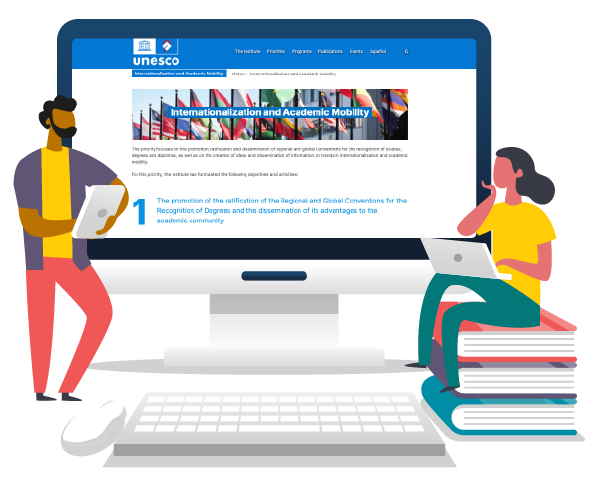
As part of the UNESCO Futures of Education Global Initiative, the Institute ran a multi-phased research project on the theme, resulting in two reports in 2021. The first, “Thinking Higher and Beyond: Perspectives on the Futures of Higher Education to 2050”, was based on a global consultation with established thinkers and leaders in higher education available in English, French, and Spanish In addition, the results of the second phase, a major online public consultation with 1,200 people in almost 100 countries, were also released, under the title of “Pathways to 2050 and beyond: findings from a public consultation on the futures of higher education”, also available in English and Spanish.

Capacity development
n 2021, four main themes concentrated the activities in this area: the recognition of qualifications, sustainable development, the creation of a virtual campus and a major initiative for capacity development developed at the request of Member States, to promote scalable and sustainable models to enhance institutional capacity.
In its mission to contribute to developing the national systems of higher education of the member states and their institutions, IESALC contributes to fostering capacities through training programs to analyze and develop better public and institutional policies. For this purpose, it develops materials and programs for awareness raising and training aimed at governments, parliaments, university institutions, and students.
To promote training and capacity development, the Institute launched Campus IESALC a virtual campus that includes a variety of training programs and small courses with digital badges and verifiable QR certificates and a content competency development system, with integrated videoconferencing tool. The Campus has an Assessment tool that has been developed to measure HEI maturity level to enhance hybrid learning in universities and offers detailed reports and suggestions to improve their results.

First, the virtual campus (Campus IESALC) was built as a community of knowledge based on the use of technology to promote a space for social and collaborative learning, that offers different courses for main higher education actors, from policymakers to teachers and students, including institutional leaders, managers and university technical staff.
Second, the course catalogue was expanded, including a self-paced course about Regional convention for the recognition of studies, online course is related to the recognition of higher education studies, degrees, and diplomas. This course, available since April 2021 in Spanish, English, French, and Portuguese, includes various asynchronous activities and virtual fora. In addition, another 14 courses focused on learning design, virtual assessment tools, ESD and transformative pedagogies were launched.
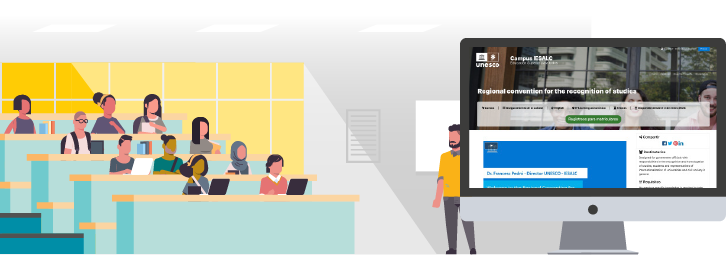
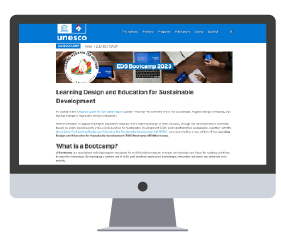

The Bootcamp supports university teams in designing curricular activities for incorporating Education for Sustainable Development (ESD) into their curricula, supported by the CoDesign ESD toolkit designed by Association for Learning Design and Education for Sustainable Development (ALDESD). Teams create curriculum activities that contribute to integrating ESD into higher education practices in a module of their choice. For 12 weeks, 21 universities from 13 countries (Argentina, Australia, Colombia, Chile, Honduras, Ecuador, Hong-Kong, UK, United Arab Emirates, Mexico, Spain, Panama, and Perú), 126 participants and 41 specialized mentors on learning design and sustainability, worked with on curricular proposal that includes the Sustainable Development Goals. This first Bootcamp was organized by UNESCO IESALC, the American University of Sharjah, the Open University, Anglia Ruskin University and the Global Sustainability Institute ARU.
Fourth, at the request of the Peruvian Ministry of Education and funding from the PMESUT,IESALC developed a Quality and Change Management Program with agile methodologies to support the design of the Improvement Projects Plan (PPM) of 14 Peruvian public universities. All these projects were related to teacher development systems with training in pedagogical frameworks aimed at strengthening blended and hybrid models. With more than 360 hours of training and technical assistance, with an average of 96.6% attendance to all synchronous training sessions, technical assistance, and consulting for quality improvement, 42 participants were mentored during 12 weeks by 14 mentors from different countries and thus acquired the skills and abilities to strengthen their competencies and teamwork, as well as their sense of belonging. This activity involved the participation of higher education institutions from other countries, in a peer-learning strategy, namely from Chile, Colombia, Mexico, and the Dominican Republic. Final PPMs included a project plan aligned with the university strategic plan, and a road map as a guidance for its implementations with KPIs and indicator. Based on this program the Ministry allocated funding for each university to implement their Improvement Projects Plan.

Starting the journey to the
World Higher Education Conference

Dissemination and advocacy

The Institute organized or actively participated in webinars, forums, and conferences at regional and international levels to promote its work. In 2021, the staff of IESALC participated in 122 dissemination activities in 35 countries.

